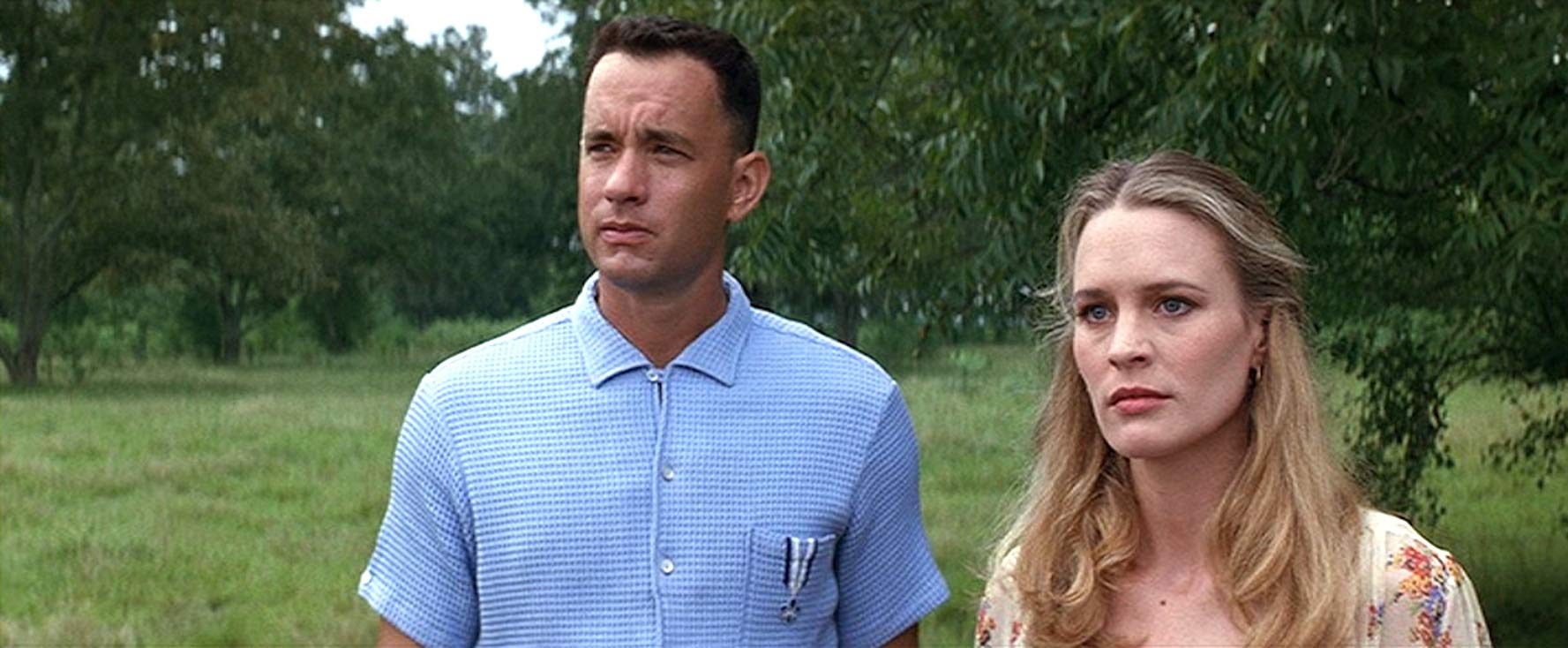When I was thirteen, my dad sat me down and told me that my life was about to change. He said that the movie I was about to watch would forever alter the way I see the world and life would never be the same. So I sat for the next two hours and twenty-two minutes enduring the film that is Forrest Gump (1994).
I watched as Forrest Gump (Tom Hanks) sat on a simple bus bench in Savannah and retold his life story to a few wary strangers sitting next to him. He spoke of his dysfunctional relationship with his childhood friend Jenny Curran (Robin Wright) and his struggles to persevere through the obstacles life had thrown his way, always somehow emerging victorious. About two and a half hours later, I finished the film feeling anything but “changed.”
While Tom Hanks does a wonderful portrayal of Forrest Gump, the character itself had a very run of the mill plotline: troubled teen defies all odds to achieves greatness in life. Ferris Bueller’s Day Off (1986), Back to the Future (1985) ... sound familiar? I could have guessed that Forrest and Jenny would eventually end up together and start a family. Maybe it’s just the cynic in me, but movies like Forrest Gump just get old. The more you watch it, the more you start to buy into the unrealistic expectation that life always works out. While Forrest Gump manages to throw a little wrench into that expectation by killing off Jenny in the end, there is still a sense of naive optimism that both Forrest and his son will ultimately always thrive. Is it too much to ask for a movie that lays out life in a realistic manner?
Getting deeper into the plot of the film, one of my biggest issues with it is the way it depicts sexual harassment and assault. In the beginning, Forrest’s mother is depicted sleeping with Forrest’s principal to prevent her son from being sent to a school for kids with disabilities. While the #MeToo movement was not even a sparkle in anyone’s eye at the time Forrest Gump was released, it is still slightly troubling to see Forrest’s mother’s sacrifice for her son. The scene only perpetuates the old fashioned, outdated idea that women’s bodies are not their own. Forrest’s mother’s body is essentially used as a pawn in Forrest’s principal’s sick game which is very discomforting. In an era where women empowerment and owning your body is very important, this scene just does not belong. In a different scene, Forrest mentions the sexual abuse Jenny suffered as a kid, saying: “He [Jenny’s father] was a very loving man, always kissing and touching her and her sisters.” Forrest is essentially sugar coating the sexual abuse Jenny suffered from her father. While it is played off as a result of Forrest’s low IQ, the scene only further promotes the idea of sexual abuse as taboo. Some may argue that the film is still a masterpiece regardless of its complete disregard for sexual harassment and abuse, but I refuse to make excuses for the movie. While it may have been a life changing film back in 1994, times have changed; Forrest Gump remains stuck in the past with its naive perpetuation of societal norms and sexist stereotypes.
How as a society are we supposed to keep moving forward if we idealize the past? The past is supposed to be a period filled with mistakes, a time to learn from. And so we need to do just that with films like Forrest Gump. Instead of condoning its inconsiderate, hurtful themes, we need to strive to make films that readily depict a society that is more accepting and promote healthy thoughts and ideas. While I see why my dad loved all the hoorah and spunk in Forrest Gump, I choose to see past it.







Insightful, you go girl!
“Stupid is as stupid does”
It’s the way you see it. What I got to learn is life hard for everyone but forest the character is so much involved in what ever he is doing the rate of his chances of success has reached infinite.
Pity some people still try relate everything in negative way.
I agree with Devin. You have missed the point of the whole film. Even with adversity Forrest tends to flourish. The different sexual events in the film are only meant to show the lengths that a mother would go for their child back in those days. As for Jenny and her father (and her sisters), I am sure this was a common occurrence back then and probably is more common today then we realize. The movie was able to bring it to the forefront in a way the children suffering today could relate to and possibly ask for help. I thought it was a very entertaining film about life and it’s way of rewarding the simple things we take for granted everyday. May not be stock in Apple or BubbaGump shrimp company but everyday does have it little rewards if you look for them.
Te hace falta mucha literatura..No supiste interpretar la película desde todos los puntos de vista…y tiene varios…Deberías volver a verla varias veces y descubriras distintas interpretaciones..siempre y cuando puedas bajar tu nivel de frustración e intentes leer entre líneas los diferentes mensajes …
Interesting take on it.
I perceived that particular topic as a complete and utter condemnation of sexual abuse/abuse of power. The impact is clearly softened by the lack of social awareness possessed by Forrest, and after all, as the narrator, his is the viewpoint you are given. However the whole point of the movie is how Forrest is (sometimes blissfully) unaware of the magnitude of what he is a part of, or what is going on around him.
What else is interesting about Jenny’s storyline is the effect this quite clearly has on her, though she never directly verbalises what/why-the sex work (performing in what is essentially a strip club), the abusive relationship, the substance abuse…I think it was very subtly done, but, statistically at least, a very accurate portrayal of the life path followed by survivors of childhood sexual abuse.
The level of subtlety with which the story deals with some of the darkest and disturbing subject matter (sexual abuse, corruption, war) is outstanding.
The time when Forrest’s mom sleeps with the principal is in the 1950s when women were being sexually harassed on the regular. Forrest is too naive to know what Jenny’s father was really doing and nobody talked about sexual abuse, and it was swept under the rug. You must not know history to get these conclusions from the movie.